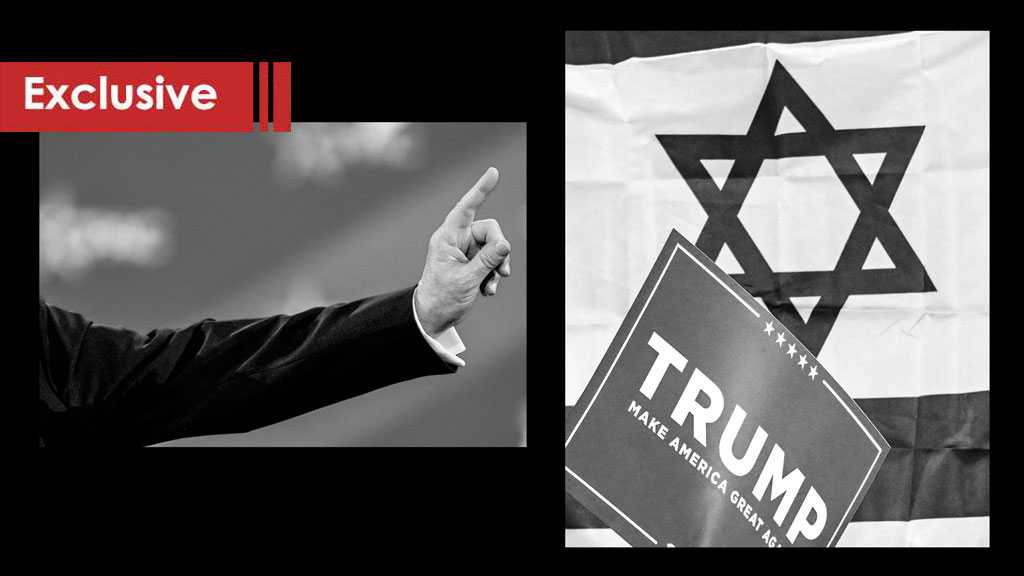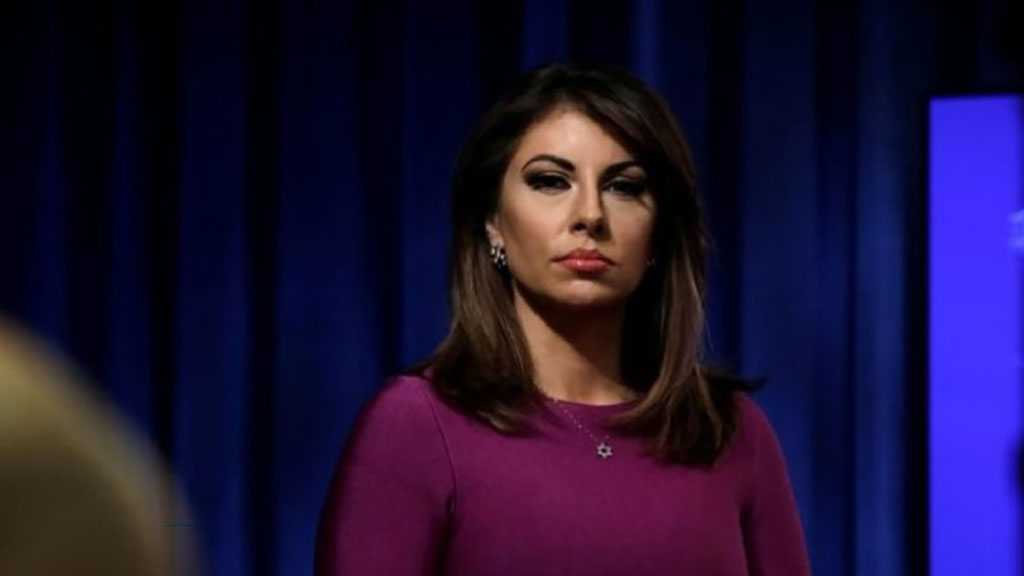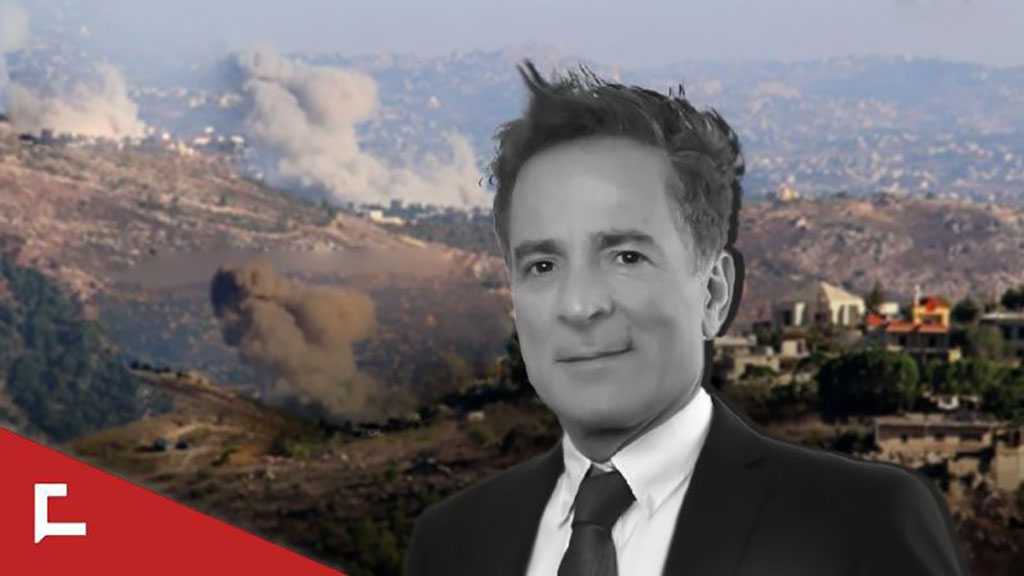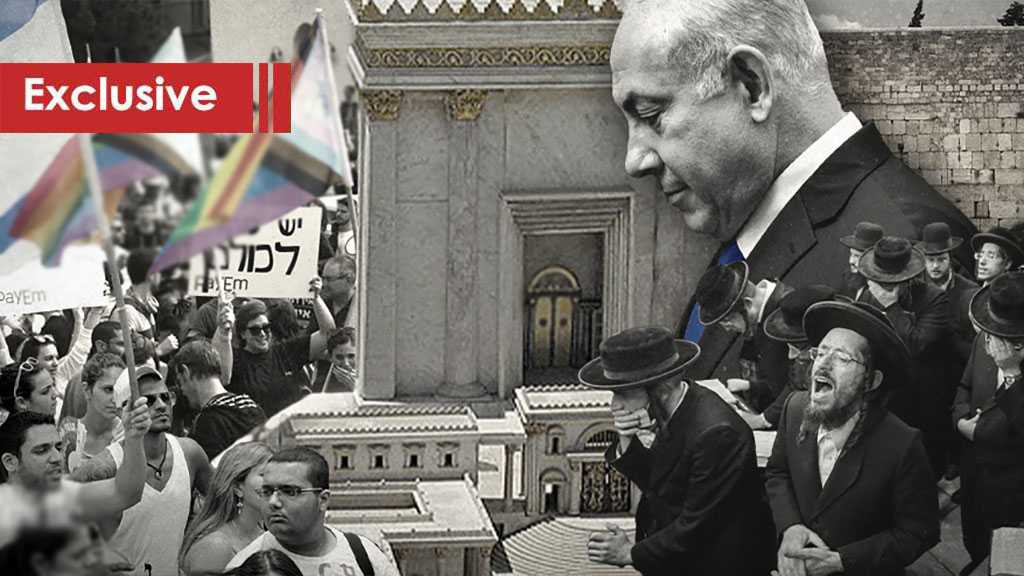
The Misfortune of the Americans in Yemen: Fleeing even in an Omani Airport....No Humiliation
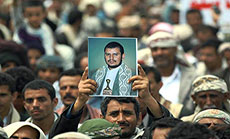
Abed Al Hussein Shebeeb
When the fighters of Ansarullah Movement and the popular committees took controlled over the Capital Sana'a and the Agreement of Peace and Corporation between political forces was inked on September 21, 2014 - the day of the victory of the blessed Yemeni Revolution - the United States thought that it is a summer cloud that will no soon disperse among autumn clouds. They thought that Ansarullah are just, "kidding" and that they will in no time retreat under the impact of international threats and intimidations besides failing to lead a country with much challenges and risks.
As usual, Washington at that time summoned its traditional tools to express its anger: statements issued by specialized US circles, the State Department, and the White House, a presidential statement from the Security Council, and then a statement by the ten countries sponsoring the Gulf Initiative which aborted the revolution of the Yemeni people on February 11, 2011. It goes without saying that they condemned using arms and violence in controlling the capital. However, no soon the Americans discovered that the story is bigger that their imagination which is based on belittling the Yemeni people. All of a sudden, they noticed an essential change in the administration of the stage. The primary field of experiment was Sana'a Airport which comprised future indicators.
The Airport first
Becoming the principle supervisor of the activities of the various apparatuses, the Popular Committees set new rules pertaining to aviation and traveling from and to Yemen. The Americans no more enjoyed extraordinary treatment as per their ambassador and the more senior officers; they rather became under the sovereignty of the diplomatic law. A US military airplane tried to unload its freight to let in to Yemen for the interest of the US Embassy. It was not allowed because its freight did not conform with the manifest submitted to the customs. Only the conformed items were submitted. The rest was not.
Another US military airplane also tried to unload arms freight to the interest of the Yemeni Special Forces. A procession of US vehicles was supposed to transport them to the Headquarters of the Yemeni Special Forces. The Popular Committees refused and insisted that the Yemeni Special Forces themselves receive the freight at the airport and transport it to their headquarters. The Americans insisted on their view; the Popular Committees refused, and the freight was returned. Moreover, the diplomatic portfolio did not anymore pass in a way that undervalues the rules agreed on. It came to be under the legal surveillance of the Popular Committees as asserted by a source close to Ansarullah Movement.
The Americans came to understand that something big is taking place and that the movement and transportation of the US Ambassador was not as before and also not similar to the hegemony and authority practiced by US ambassadors in all the Arab countries - a senior commissioner above any law including Vienna Agreement that organizes diplomatic relationships between nations. US ambassadors' convoys even precede some convoys of Arab kings, princes, and presidents.
Washington raised its ceilings towards the Yemeni Revolution. It could pass a resolution in the International Security Council that imposes sanctions on three persons accusing them of hindering the political process in Yemen.
The three men are former President Ali Abdullah Saleh and the two leaderships in Ansarullah Movement Abdulkhaleq Al Huthi and Abdullah Yahya Al Hakem who is known in Yemen as "Abu Ali Al Hakem". However, it seems that the Americans could not understand the lesson very well, and they are still under the influence of the shock when Sana'a as well as several Northern provinces fell in the hands of the Popular Committees. Prior to all of these developments, the Americans used to believe listing Yemen under Chapter VII pursuant to Resolution 2140 of February 2014 would deter any Yemeni power from going so far in their absolute decisive options. Above all, the resolution was addressing Ansarullah. However, all the strategic changes took place following the resolution - starting with the launching of the popular revolution by Sayyed Abdulmalak Badriddine Al Houthi on August 4 and ending with its victory on September 21, 2014.
A Spy in the President's Office
The Americans tried to suppress the achievement of the revolution and pump a forceful dose in the vein of the regime which was fabricated in Saudi Arabia pursuant to the Gulf Initiative. Thus they agreed on the Agreement of Peace and Corporation; however, they tried to contain it through President Abed Rabbu Mansour Hadi charging his office manager Ahmad Bin Mubarak of forming the government of competences. Sayyed Abdulmalak raised his voice high; Bin Mubarak no soon declined under the pressure of Al Houthi's decisive threat.
Bin Mubarak is the US man in Yemen along with several other men whom Washington prepared to be the symbols of the future stage. The Americans made another try. They practiced pressure on their team to go directly to endorsing the constitution that divides Yemen into six regions - a disintegration operation for this country that guarantees disjointing it for good. They charged Bin Mubarak of this mission; Bin Mubarak took pains in drafting the law through sessions held in the United Arab Emirates (for clear unknown reasons!) He tried to pass it through indirect ways to the national committee for observing the outcome of the dialogue conference without President Hadi reforming this committee pursuant to the Agreement of Peace and Corporation. The Popular Committees forcefully confronted this desperate attempt and arrested Bin Mubarak while on his way to the conference specified for endorsing the draft of the constitution.
The Americans were taken aback by this rebellious measure, and the US embassy made haste issuing a statement calling for the instant release of Bin Mubarak even before President Hadi demanding that. Still, the surprise that was no less than a thunderbolt to all was represented in laying hands on documents and voice records Bin Mubarak himself recorded and documented on his mobile phone of all his calls with his President Abed Rabbu Mansour Hadi showing the indirect ways Bin Mubarak resorted to in order to pass the project of dividing Yemen to six regions.
In brief, it was found that Bin Mubarak was a US spy whose mission was to run President Hadi and not the other way round. Still the most important thing found with this man was the strategic security scheme that determines the risks facing Yemen - from the US perspective indeed with Ansarullah Movement being on top of these risks - and the means of confronting them. Through its content and drafting, this scheme was found to be made in the USA and translated into Arabic. Its mission was to hurl the county into security chaos.
Abu Ali Al Hakem
Washington was frustrated. All its attempts to release Bin Mubarak who himself did not want to be set free anymore without guarantees being informed of President Hadi's wrath on him for his treason did not work. Senior dignitaries from Shabwa Province interfered; Ansarullah handed him, and he left on the spot to Saudi Arabia putting a humiliating end to his political aspirations. As such, the Popular Revolutionary Committee frustrated the division scheme. President Hadi and his Premier Khaled Bahhah ended up in resignation as the first refused to implement the clauses of the presidential statement which he agreed on and then retreated.
Following a local operation in confronting an attempt by forces from the presidential guards to expand in some areas in the capital near the presidential palace and the residence of the president, all the country's seats became under the control and patronage of the Popular Committees. All of this was taking place before the eyes of Washington which was observing with perplexity the fall of a political regime it had been trying to build for three years and feeling unable to do anything to restore it. Even US Ambassador Mathew Tueller sensed that everything had changed to the extent that his convey was stopped for three hours at one of the check points held by the Popular Committees in one of the streets of the capital for violating the law.
Activists circulated a photo showing his convey stopped at the check point. He was not allowed to pass before writing a pledge against cruising with arms in the capital. It was not any more possible to resort to the national security body - the US pet - after its headquarters came to be under the command of the Popular Committees.
The Americans came to know that the revolution procession was proceeding, and that no one can stand in face of it and no cries are reason enough to make it look backwards. The Popular Committees were open to dialogue all through the days of negotiations sponsored by Jamal Bin Omar. But when the revolutionaries smelled a rat in the attempts to maneuver to gain time and by the end of the time limits the leadership of the revolution decided - pursuant to the popular authorization granted to it by the broad national conference held in Sana'a - to issue a constitutional announcement that organizes the process of running the transitional stage.
The announcement was made at the republican palace in the presence of senior political and military leaderships. Another thunderbolt struck the Americans. Two astounding moves were expected to shock them. While reading the constitutional announcement and in the first line of the attendance there was Abu Ali Al Hakem wearing his official military attire and performing the military greeting while the national Yemeni anthem was being chanted. The second shock was manifested in the formation of the supreme security committee headed by the Defense Ministry charge d'affaire Brigadier Mahmoud Subeihi. It included military and security leaders from the army and the other governmental apparatuses in addition to senior military and security leaderships from Ansarullah including Abu Ali Hakem. This committee is charged of running the country while waiting for the formation of constitutional institutions stipulated on by the constitutional announcement. As such the man who was not allowed to travel and whose money is confiscated in world banks (By the way he is poor, and he barely has his daily bread) became one of the security and military decision makers in Yemen. The message is clear: threatening and intimidating with sanctions and the like are unproductive measures.
A Diplomatic Revolution:
Washington came to know that the time of guardianship had came to an end and now it is time for legalized diplomatic relations, mutual respect, and observing only legitimate interests while stopping all the illegal interests and stopping any interference in the affairs of Yemen as came in the speech of Sayyed Abdulmalak Badriddine Al Houthi. Would the great state accept from this poor devastated country- as it refers to - to impose its conditions on it? Would it accept that its ambassador in Sana'a be as the other Arab ambassadors in Washington? Would it accept that he observes the principles and rules of diplomatic activity and that he does not meet anyone except with the permission of the Yemeni Foreign Minister?
The new diplomatic track in Yemen was put to test when the Yemeni Foreign Ministry Undersecretary for political affairs Hameed Awadi called on the Revolutionary Committees to summon all the Arab and foreign ministers in Sana'a to inform them of the new constitutional developments and to reassure them that the diplomatic relations will stay valid according to the principles and that the diplomatic delegations will remain under the auspicious of the Yemeni state. All the ambassadors showed up at the seat of the Foreign Minister except for the US Ambassador who still believes that it does not fit his country to be summoned to such a meeting. The Revolutionary Committees answered the rebellion of the US Ambassador with a military movement in the surrounding of the seat of the embassy. They prevented entering and departing to and from it to make those within know that the era of guardianship had came to an end in action and not in words and that the behavior of the ambassador is unbecoming.
All links of communication were cut, and there was not any security apparatus which they could resort to, especially the national security apparatuses, to help them in their aerial war on "Al Qaeda". The Americans came to suspect even senior officers for their enrollment in the new selections in the transitional stage, and those who refused the membership offered by the committee resigned; so they weren't of any benefit to them. They had no other choice other than fleeing.
The United States closed its embassy in Yemen, and it ambassador, the members of the diplomatic and intelligence delegation, and the Marines unit left. However, their departure was not an ordinary piece of news passed unnoticed and without a Yemeni touch. First, the Americans contacted the Omani authorities in Muscat to mediate with the Popular Committees to facilitate their departure from the seat of the embassy to the airport. They agreed, and the Omanis made the necessary contacts. They dispatched an Omani airplane to Sana'a Airport to transport the US delegation as a close source to the Revolutionary Committees reported to Al Ahed. The agreement was implemented in its minutest details pursuant to the law. Upon the arrival of the members of the delegation and the Marines Unit, mounting to 128 members, the Popular Committee obliged them to hand over their arms. They also left behind their armored vehicles and their keys at the gate of the airport. The Yemeni police received them under the supervision of the Popular Committees, and they are now with the Yemeni state in observance of Vienna agreements which guards the possessions of state delegations. So Ansarullah members did not seize them as Hussein Al Ghazzi - the head of the foreign relationship circle in the Movement - asserted. In fact, they hate America and boycott its goods. They do not use American cars. Perhaps they are also equipped with espionage and GPS devices. So there is no need to record a security violation. Besides they are not in need for them.
Destroying the espionage memory
This was the denouement of the fleeing operation. However, before it took place the members of the US Embassy destroyed all its contents because they were afraid of them falling in the hands of the Popular Committees in case of taking them with them. Tens of thousands of paper documents, recording tapes, video tapes, cds, portables, and the memories of all apparatuses and surveillance cameras were destroyed by fire so that no material labeled important by the USA would fall in the hands of the Popular Committees. Even the artilleries in the stores of the embassy were burned.
It is clear that the Americans felt the scenario of storming into the US embassy in Tehran shortly after the victory of the Islamic Revolution may take place again. At that time, the members of the embassy destroyed all the documents by shredders.
However, the Iranians could rejoin these documents from the paper threads left in these machines, and they gathered very important documents about the activities of the embassy at that time. To avoid the repetition of its experience in Iran, Washington sent orders to the effect of destroying the documents by fire and not by tearing them away so that nothing remains and that no one knows with tangible evidences what it did and what the diplomatic security delegation in Sana'a used to do, who contrived with it, and what conspiracies and schemes used to be weaved within its walls against Yemen and its surroundings and perhaps further from its regional surroundings. That is indeed besides the conferences that used to take place there with Yemeni political forces which showed subordination to the Americans and others. Such meetings are fully filmed as sources which tackled this step said. The US Ambassador himself burnt the contents of his office, and the Yemeni employees in the embassy watched the operation of setting to fire a memory that covers decades of years. The Yemenis have to wait for a new Julian Assange, or they have to wait for tens of years before these documents come to public.
In the hole in which the burning operation took place, the United States expressed its fear. In the airport, America expressed its worst scenes when it left behind it the vehicles that carried the members of its delegation and the Marines members whom the Popular Committees disarmed before they boarded the Omani airplane unarmed.
Why did the Americans quit in a hurry and all of a sudden even though the international envoy Jamal Bin Amr is still leading the negotiations between the political forces? Were they afraid from a TV advertisement calling for a demonstration to mark the revolution of February 2011 which was commemorated on Wednesday February 11 in which the photo of the US ambassador appears thus the Americans thought it is a message to the effect of reiterating the Iranian experience with which the Yemeni revolution happened to coincide?
The answer is in the heart and mind of the Americans. In conclusion, the US embassy with its edifices in Saawan Neighborhood to the east of Sana'a - on which 250 Turkish men were working at its expansion and left days ago - was evacuated. It has become a vacant place with no motion after it was in nonstop action for long years. Still, is this closure temporary or final? How will the United States deal with Yemen from without? What are its options towards a new regime run by a revolutionary committee? Who will provide the Americans from now on with a cover for their aerial raids staged by unmanned airplanes which violate the Yemeni sovereignty and kill many Yemenis while claiming it is fighting Al Qaeda in the Arab Peninsula? The tenure of President Hadi who said today that the Americans are better than the Yemenis in targeting Al Qaeda because of their experience and because they do not kill civilians as Yemeni pilots do as he claims has came to an end and no one can restore him back - neither the Security Council nor any other side?
The article has a sequel which tries to find answers to some question.
